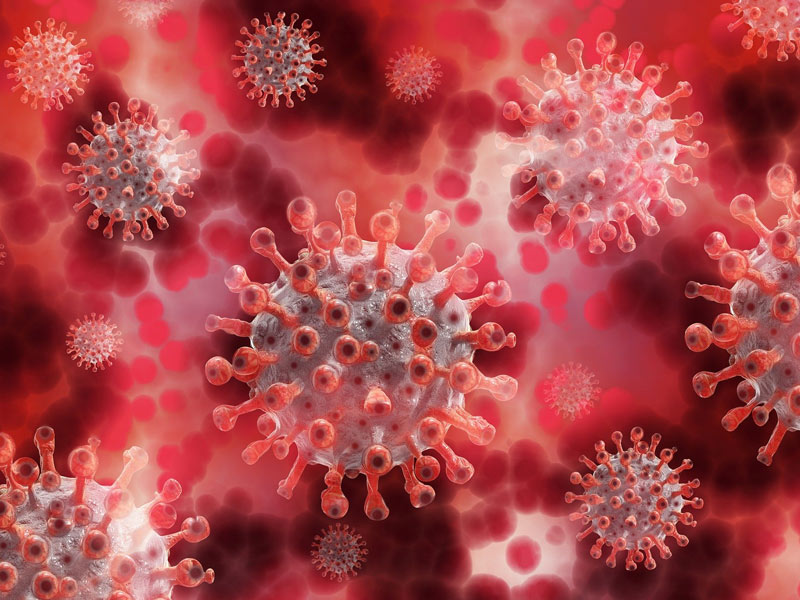
Right when the holiday season is about to begin in Europe and North America, COVID-19 is surging across several of its nations. This is especially the case with the United Kingdom (UK), which is witnessing record high daily COVID cases. The country of over 6.72 crore people has also recorded a staggering number of over 10,000 Omicron cases. This is a cause of major concern, as the new ‘variant of concern’ is said to be more transmissible than the other coronavirus variants, creating apprehension regarding pressure it might put on the healthcare system. Now a study conducted in the country has hinted at something similar.
Table of Content:-
As per the research done at UK’s Imperial College London, the new Omicron variant is over five times more likely to cause reinfection as compared to the highly virulent Delta variant. Not only that, there is no sign to believe that it causes a milder infection as compared to Delta. The study also looked into the efficacy of the various COVID vaccines concerning the new variant.
About The Omicron Study Conducted At UK’s Imperial College London

(Photo Credit: Unsplash)
Before delving into the study findings, let us first look at how the research was undertaken:
- As already stated, the study was undertaken at the Imperial College London.
- The analysis was based on the data collected by the UK Health Security Agency and National Health Service of people who tested positive for COVID-19 (based on RT-PCR tests) between November 29 and December 11.
- In total, the data of 333,000 cases were analysed. 122,062 of them were infected with Delta and 1,846 with Omicron variant. This was found out based on genome sequencing.
- The efficacy of vaccines developed by Pfizer and AstraZeneca was also studied.
- The research is yet to be peer-reviewed.
Also read: Omicron Less Severe But Travels 70 Times Faster Than Delta, Original COVID Variant: Study
Omicron More Likely To Cause Reinfection: Study

(Photo Credit: Unsplash)
Here is what the study found out:
- The Omicron variant has a 5.4 times greater chance of causing reinfection as compared to the Delta variant.
- In fact, in the case of Omicron, the protection offered by the past reinfection against reinfection was as low as 19%. This clearly shows those who previously have suffered from COVID-19, are at a chance of getting reinfected with Omicron.
- Also, the researchers found no data to back the claim that Omicron causes less severe infection as compared to the Delta variant.
- Those who are 2 or more weeks past their second COVID vaccine dose or booster dose are more likely to suffer from symptomatic Omicron as compared to symptomatic Delta case, the study found out.
- Also, the vaccine effectiveness was pegged between 0 and 20% in the case of two doses and between 55 and 80% in the case of booster doses. This was based on the estimates for vaccine effectiveness against the asymptomatic Delta case.
In a statement, the study’s lead author Professor Neil Ferguson said that the research clearly shows the extent to which Omicron can evade the immune protection offered by infection and vaccination. This further shows that Omicron can pose a “major, imminent threat to public health.”
Also read: After Pfizer, Moderna's COVID Vaccine Shows Lowered Efficacy Against Omicron: Study
About Omicron Variant
Just like any other virus, the novel coronavirus, which causes COVID-19, is mutating continuously into strains, some of which are dangerous and the other comparatively milder. If we talk about Omicron, it would probably land up in the former category.
- Its first case was detected in South Africa on November 9.
- That month itself, the World Health Organisation (WHO) classified it under the ‘variant of concern’. Those strains that can cause severe disease and pose a major threat to public health are placed in this category. The Delta variant, which was first identified in India and is believed to be the cause behind the massive second wave in the country, is also a variant of concern.
- Omicron is believed to evade the immune response generated by previous infection and vaccination, thus, is more transmissible.
Although there is a major concern around the variant, a lot is still not known about it. Hence, what might help is to follow the COVID protection protocols to prevent infection as much as you can. So, wear your mask, practise social distancing, and get vaccinated. These are crucial in protection against not just Omicron, but any variant of the novel coronavirus.
Photo Credit: Pixabay
Also watch this video
How we keep this article up to date:
We work with experts and keep a close eye on the latest in health and wellness. Whenever there is a new research or helpful information, we update our articles with accurate and useful advice.
Current Version